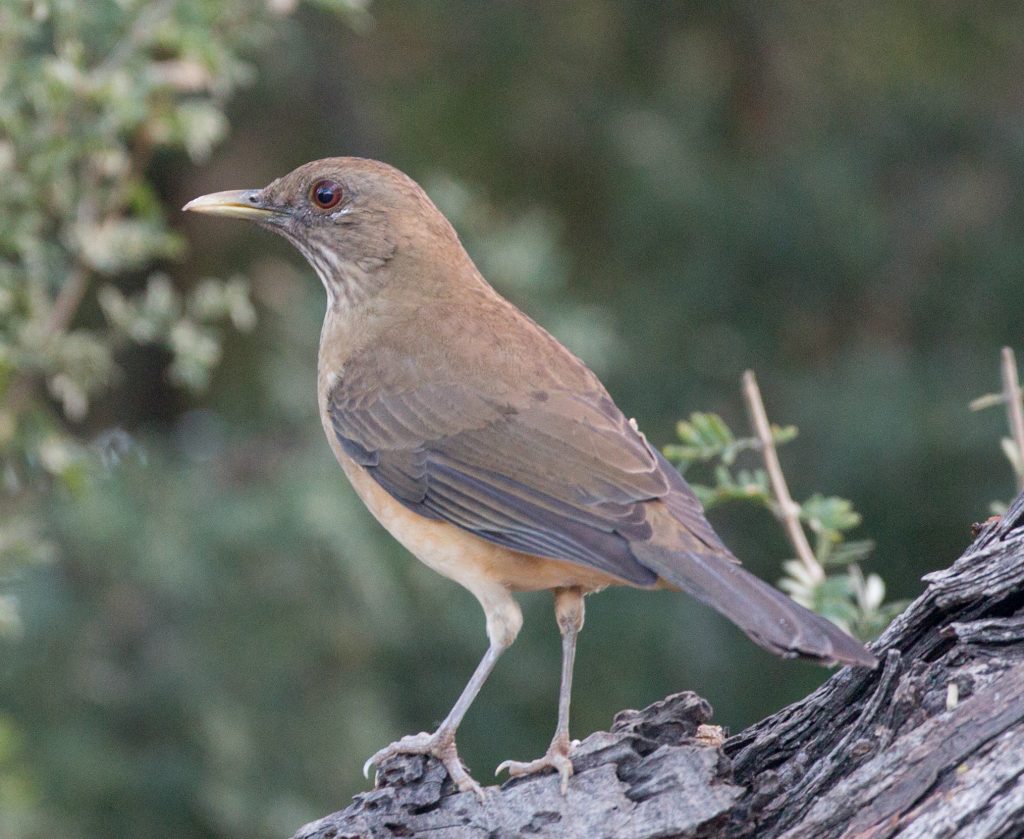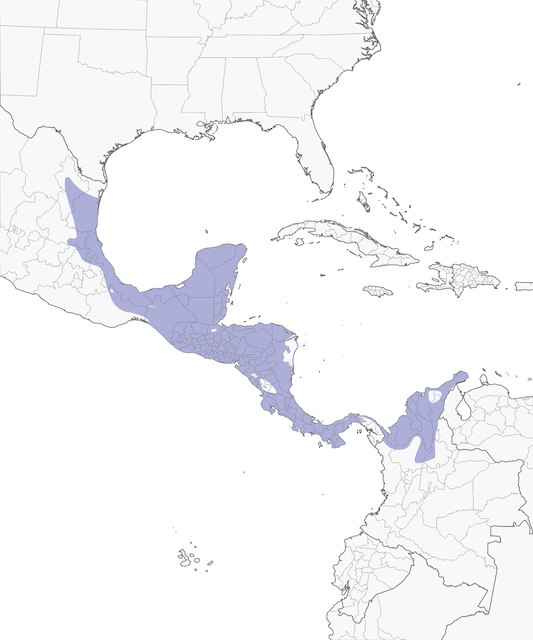 Photo ©
Ian Davies
Photo ©
Ian Davies
Clay-colored Thrush
Regional Species
The Clay-colored Thrush is a very common bird throughout Central America, parts of Mexico and northern Colombia. It is found in a variety of habitats such as wooded areas, towns and parks. The Clay-colored thrush usually remains on the ground floor or in low vegetation. It is commonly observed alone or in pairs.
Range

Habitat
![]() The Clay-colored Thrush is a common bird in parks, gardens and yards on the ground floor or in low vegetation. It is found in areas with scattered trees and on the edges of forests. Sometimes it is observed in groups on fruit trees.
The Clay-colored Thrush is a common bird in parks, gardens and yards on the ground floor or in low vegetation. It is found in areas with scattered trees and on the edges of forests. Sometimes it is observed in groups on fruit trees.
Food
![]() The Clay-colored Thrush usually looks for its food on the ground or at a low altitude in the vegetation, alone or in pairs. Sometimes it is seen in flocks eating in fruit trees. Its diet is mainly based on invertebrates such as insects and larvae, worms, millipedes, snails and spiders.
The Clay-colored Thrush usually looks for its food on the ground or at a low altitude in the vegetation, alone or in pairs. Sometimes it is seen in flocks eating in fruit trees. Its diet is mainly based on invertebrates such as insects and larvae, worms, millipedes, snails and spiders.
Behavior
![]() During the nesting season, the Clay-colored Thrush aggressively defends its nest and its surroundings, but the rest of the year it is a rather passive bird.
During the nesting season, the Clay-colored Thrush aggressively defends its nest and its surroundings, but the rest of the year it is a rather passive bird.
Nesting
![]() The Clay-colored Thrush builds a thick cup nest with grasses, moss, feathers, leaves and mud above ground level over vegetation or other structures. It lays 2 to 4 eggs.
The Clay-colored Thrush builds a thick cup nest with grasses, moss, feathers, leaves and mud above ground level over vegetation or other structures. It lays 2 to 4 eggs.
Appearance
Size & Shape
The Clay-colored thrush has similar size and shape to other thrushes.
Color Pattern
The Clay-colored thrush is a uniformly brown-colored bird. It has a lighter belly color. It has a distinctive yellow beak with very pale streaks in its throat.
Similar Species
Similar to the Pale-vented Thrush, but the Pale-vented Thrush has dark beak and white vent.
Did you know?!
- It is the national bird of Costa Rica because it has a beautiful melodious song.
- It defends its next aggressively during reproduction, but most of the year is passive.